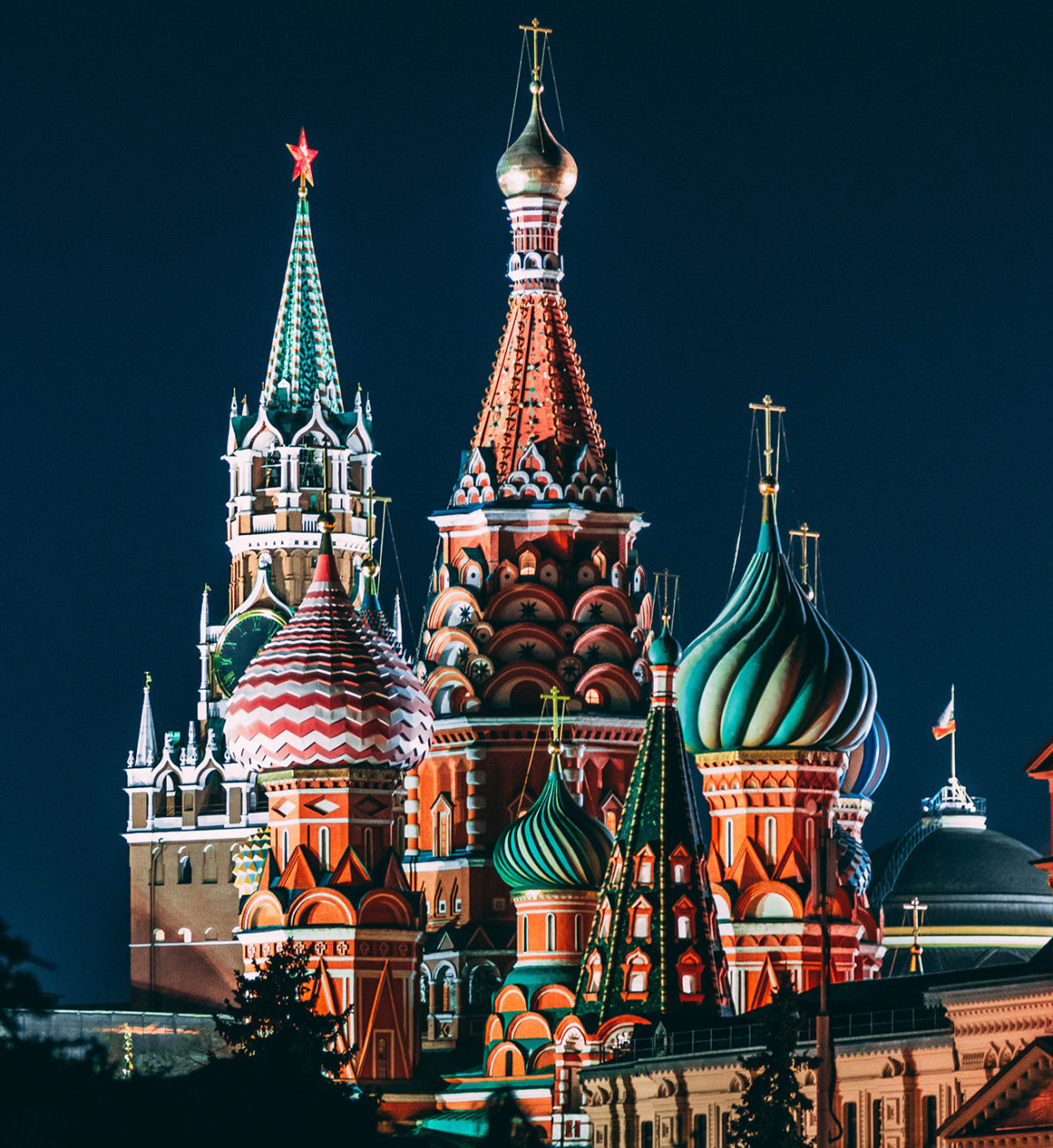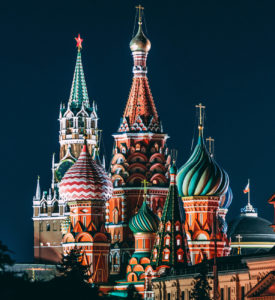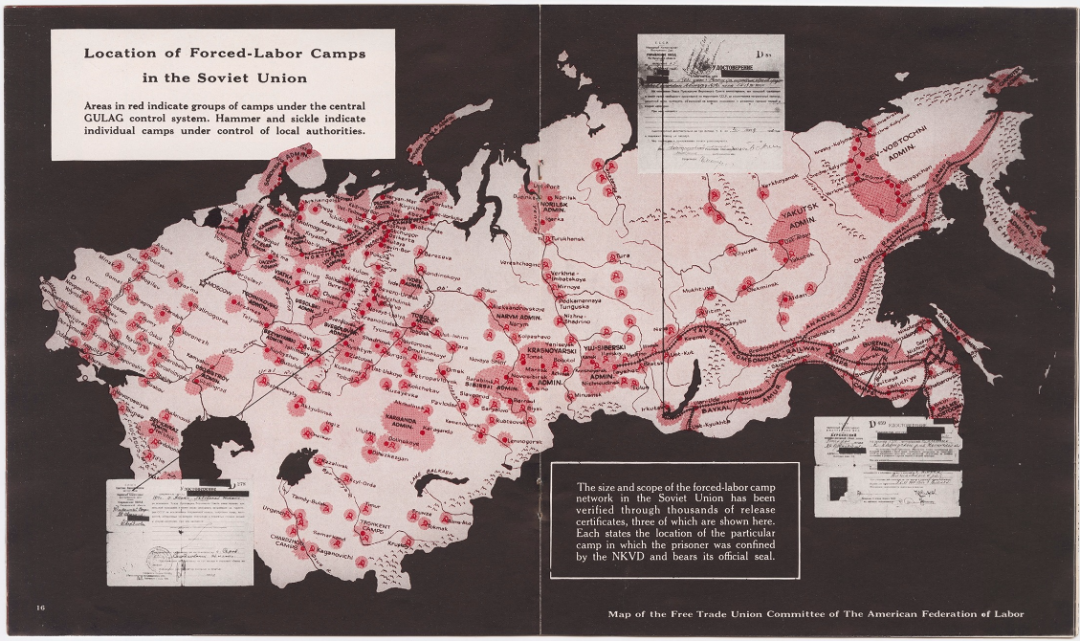Most Recent News


Popular News




A timeless masterpiece detailing the horrific tragedies and ruthlessness of communism within the Soviet Union: The Gulag Archipelago by Aleksandr Solzhenitsyn.
I’ve held a lot of different jobs over the years, especially in my youth. I was a factory worker, a customer service representative, a bank teller, an IT support help-desk guy, and many, many others. Most of these jobs have put me in contact with certain personality-driven coworkers, and the general American public. And what is a common trait with most of the public (even outside the U.S.)?
Complaining.

From “I can’t believe how much red tape there is to cash this check” (that was actually a gift card) to “the cash register isn’t nearly fast enough, I only have 2 seconds to spare”, and even the infamous “I demand a refund, even though I don’t have a receipt because I’m the chosen one”.
It’s as though these complainers just had their entire world crash around them. What, a minor inconvenience you say? This just ruins everything! The entire day gone, an endless array of bitching to their significant other will surely arrive as soon as they vacate this incomprehensible situation.
And God forbid you ask them to wait for 5 seconds so you could finish a transaction with someone else that was first in line. The mere thought that “I’m not the center of the world in importance?” suddenly strikes their veins. These morons provide an easily recognizable look of pure disbelief and devastation.
After reading this book, suddenly all these slight inconveniences are rendered really insignificant.
It’s hard to worry about some minimum-wage worker that forgot to separately bag your milk when you’ve read about people with actual problems.
People that know suffering first hand (and note: “suffering” is not being denied the return of your $3 deodorant stick that you already used four times).
I mean actual suffering. Like being shot to fill a quota in a starvation camp.
Or being put in an isolation chamber 4 feet wide/5 foot length with access to 100 grams of bread a day for weeks on end with no access to toilets.
Or being forced to stand (yes, just stand) for 2 weeks straight (no sleeping or movements allowed) as a form of torture to force a confession on a bogus charge (that will get you a 10 year hard labor charge).
The average idea of “suffering” by many of my peers genuinely appears to be a first world problems meme.
You think you actually have challenges? This book will make you question that.
Many of the problems we face become so insignificant in relation to The Gulag that it actually helped me put my own struggles into perspective.
Suddenly, even serious issues like losing my job weren’t worth absolute emotional devastation.
And it really helps to put our problems in perspective. When you know true suffering, you can better admire true freedom from suffering.
That’s where this book comes in.
Build your character and become stronger, comrade.
I’ve read a lot of books and articles on the Soviet years. It’s probably my largest historical fascination (don’t judge, we all have one). And The Gulag Archipelago really captures the entire system.
From the base of the problem (political brawn), to the breeding of guards and secret police, to the arrest and interrogation, to the entirety of transport and camp structure, and finally to the eventual dismissal (and likely re-arrest).
No other book describes the gulag machine and humanity’s desire for evil so well.
There’s a reason this book became so famous. It is probably the most horrific and disturbing literature account of human rights violations, religious/political oppression, and realistic look into how governments can turn to unwavering evil.
The Gulag Archipelago has numerous volumes. Specifically for this review, I’ll be talking about the “abridged” version. Principally because most Westerners have short attention spans, and the abridged version covers all the main points.
Specifically, the abridged version compiles all the books into a single condensed version. It was approved by Solzhenitsyn, and is significantly less intimidating than the full version. It’s only about 472 pages (still rather significant, but many volumes themselves can be 200-300 pages).
If you read the abridged and need more (like me), then go ahead and find all the other volumes.
And what is the principal topic? Well, equal misery communism, of course. Specifically, it talks a lot about life under communism in Soviet Russia.
A quick summary of the first three volumes (the main courses):
The Archipelago references the vast structure of the forced labor system in the Soviet Union. It had become an essential driving force of the economy, easily depicted in this picture:


Solzhenitsyn writes in first hand.
Because he experienced the labor camps himself. He was imprisoned for 8 years after being accused of “writing letters that were critical of Stalin“. 8 years of hard labor for speech.
He wrote these letters while he served in the Red Army during WW2. Yes, he was a soldier. He risked his life for his country, and they returned it by sentencing him to near-death conditions for 8 years.
His story was not unique, as you’ll gather as you read the book. Many soldiers suffered similar fates under communism in the Soviet Union.
The entire archipelago was setup in such a way to systematically kill her best inhabitants.
Solzhenitsyn was even raided by the KGB while in the process of recovering the pieces of this text for publication. So sometimes he repeats himself and makes a few small grammatical errors, but hey, that’s how you write a book when you live in the Soviet Union. Not like he had the luxury to hire a proof-reader (The abridged version solves these issues, however).
The arrests were not isolated incidents either. Most families within the Soviet Union had family members killed or ripped from them and thrown to the Gulags. These prisoners, called zeks, were fed a “ration” so small that wouldn’t be able to sustain most people not performing any physical activity. But the zeks were forced to absolute maddening amounts of labor that often went for 12-16 hours a day.
Zeks regularly died from exhaustion, starving to death, freezing to death (they worked in -20 degree weather), or just being shot for whatever reason the guards felt justified it.
One notable example was a Soviet canal system. The prisoners were forced to build this canal (by pick and shovel) and carried away frozen earth in wheelbarrows or over-the-shoulder sacks. This canal cost of the lives of thousands, and they ended up not even using the canal because the Soviet leadership changed their mind on the best location.
A clear indication of the “advantages” of central planning.
Solzhenitsyn paints a clear painting for the naïve westerner about the truth of the gulag system, communism, and trust in government.
There are two main purposes for the gulag network:
Communism in a nutshell.
They imprisoned children as young as 6, recruited stool pigeons (rats among the prisoners), dropped bombs from planes on their own people, and farmed free women to be arrested so they could be sexual slaves to the guards.
45% of millennials said they would prefer a socialist government. Isn’t that so progressive? These useful idiots (as Lenin would call them) should read this masterpiece.
Then they may realize they wouldn’t be the political power. They’d be the prisoners.
It would help show them the decision-making process behind the prison and exile system, from arrest to release (when that did occur). It outlines how it got to be so bad (communist policies), and the final death toll (in the tens of millions, much greater than the Holocaust).
It would show that by making the state bigger, it actually destroys individuality.
And maybe it could show them the testament to human spirit. Most people lean left because of feelings of emotion, or feelings of inequality. True equality is sought not through material equivalence, but through spiritual equivalence. Solzhenitsyn clearly explains this through numerous drawings to philosophical insight.
If you have any shadow or glimpse of a sympathy for Soviet Russia, or communism in general, read The Gulag Archipelago and you will quickly be cured.
Many people blame Stalin and Stalin alone for the tragedies within Russia. Solzhenitsyn cuts through this like a slice of well-broiled pork, by detailing that Lenin was responsible for executions in the same vein (if not even more severe) than Stalin.
And thus, we uncover the entire historical legacy of the gulag archipelago in this text.
Even including foreign slaves (such as the Ukrainians and Germans) and their individual struggles and grisly indictment.
After reading, the brutality of the Soviets will linger with you for a long time.
But this is a learning experience that no one will soon forget if they actually take the time to read and truly put yourself in the shoes of the (un)persons within this masterpiece.
Truthfully, considering this book is regarded as “historically important” and “a well-regarded insight into the Soviet lifestyle” I had thought it would be really boring.
Much like most historical novels, they tend to be pretty lofty reads.
But I was pleasantly surprised because it reads much more like a story than a history book. And after-all, it is an “Experiment In Literary Investigation” instead of just history. It’s a personal account of Solzhenitsyn, and 200 others that faced untold horror. Somewhere between personal experience, journalism, and history book is where this lies.
And it is easy to read for this reason. It sounds more like a friend chatting with you about a very personal experience, rather than a lecture on taxes. It is fast-paced, interesting, and (absolutely) heartbreaking at times. However, deep within, you uncover something wonderful. The insight into the human spirit, the evolution from disbelief, to terror, to spiritual re-invigoration.
All in all, it can actually give you faith instead of take it away. That’s why it’s so unique, not many writers can deliver a story so well and so emotionally.
Which is why I had expected the story on this to be heavy, but instead it is a page-turner.
It’s no doubt when you read this classic, you will know why it got so famous within the first 50 pages. The hype is easily understandable.
“The line separating good and evil passes not through states, nor between classes, nor between political parties either — but right through every human heart — and through all human hearts. This line shifts. Inside us, it oscillates with the years. And even within hearts overwhelmed by evil, one small bridgehead of good is retained.“
“In keeping silent about evil, in burying it so deep within us that no sign of it appears on the surface, we are implanting it, and it will rise up a thousand fold in the future. When we neither punish nor reproach evildoers, we are not simply protecting their trivial old age, we are thereby ripping the foundations of justice from beneath new generations.”
“Bless you prison, bless you for being in my life. For there, lying upon the rotting prison straw, I came to realize that the object of life is not prosperity as we are made to believe, but the maturity of the human soul.”
“And even in the fever of epidemic arrests, when people leaving for work said farewell to their families every day, because they could not be certain they would return at night, even then almost no one tried to run away and only in rare cases did people commit suicide. And that was exactly what was required. A submissive sheep is a find for a wolf.”
A district party conference was under way in Moscow Province. It was presided over by a new secretary of the District Party Committee, replacing one recently arrested. At the conclusion of the conference, a tribute to Comrade Stalin was called for.
Of course, everyone stood up (just as everyone had leaped to his feet during the conference with every mention of his name). The hall echoed with “stormy applause, raising to an ovation.”
For three minutes, four minutes, five minutes, the “stormy applause, rising to an ovation,” continued.
But palms were getting sore and raised arms were already aching. And the older people were panting from exhaustion.
It was becoming insufferably silly even to those who adored Stalin.
However, who would dare to be the first to stop? The secretary of the District Party could have done it. He was standing on the platform, and it was he who had just called for the ovation. But he was a newcomer. He had taken the place of a man who’d been arrested. He was afraid! After all, NKVD men were standing in the hall applauding and watching to see who would quit first!
And in the obscure, small hall, unknown to the leader, the applause went on—six, seven, eight minutes! They were done for! Their goose was cooked! They couldn’t stop now till they collapsed with heart attacks! At the rear of the hall, which was crowded, they could of course cheat a bit, clap less frequently, less vigorously, not so eagerly—but up there with the presidium where everyone could see them’
The director of the local paper factor, an independent and strong-minded man, stood with the presidium. Aware of all the falsity and all the impossibility of the situation, he still kept on applauding! Nine minutes! Ten! In anguish he watched the secretary of the District Party Committee, but the latter dared not stop. Insanity! To the last man!
With make-believe enthusiasm on their faces, looking at each other with faint hope, the district leaders were just going to go on and on applauding till they fell where they stood, till they were carried out of the hall on stretchers! And even then those who were left would not falter… Then, after eleven minutes, the director of the paper factory assumed a businesslike expression and sat down in his seat. And, oh, a miracle took place! Where had the universal, uninhibited, indescribable enthusiasm gone? To a man, everyone else stopped dead and sat down. They had been saved!
The squirrel had been smart enough to jump off his revolving wheel. That, however, was how they discovered who the independent people were. And that was how they went about eliminating them. That same night the factory director was arrested. They easily pasted ten years on him on the pretext of something quite different. But after he had signed Form 206, the final document of the interrogation, his interrogator reminded him: “Don’t ever be the first to stop applauding!”
If you are interested in historical atrocities, or the overcoming of absolute suffering, you owe yourself a read of this novel. It is a timeless piece and is incredibly inexpensive (usually not more than the cost of a few coffees).
Give it a read. It may help change your absolute faith in government, or even what you consider as “problems” you face in life.
If you enjoyed this article, bookmark the website and check back often for new content. New articles most weekdays.
You can also keep up with my writing by joining my monthly newsletter.
Help fight the censorship – Share this article!

Comments are closed.
(Learn More About The Dominion Newsletter Here)
Amazing story. But if you change the setting from Russia to Australia or America the atrocities inflicted upon the Original people are basically the same with one difference, it’s still happening to the Originals in 2018.
Sorry to burst your bubble, but no one in the US is being force fed cow manure, having their entire family line forcibly raped and impregnated by the rapists, being made to do back-crushing physical labor for 18 hours a day in sub-0 weather, or being imprisoned for three decades because they say they don’t like a certain kind of ice cream that the local ruling communist leader favors.
Come out of your imagination land, we have fresh air and donuts out here in reality